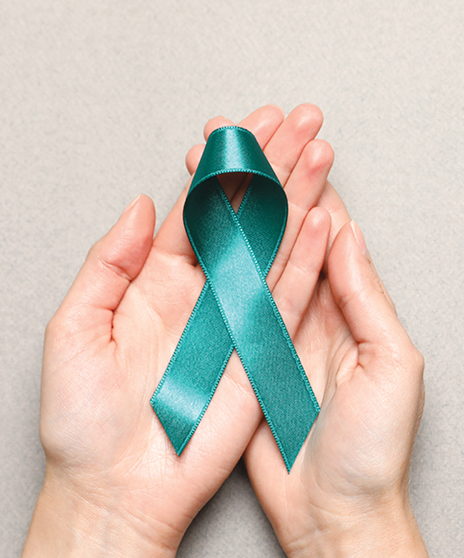Each year, more than 13,000 women in the United States will be diagnosed with cervical cancer and the condition is frequently diagnosed in women between 35 and 44 years of age, according to the National Cervical Cancer Coalition. Early detection is key to treating and preventing the disease, as it is one of the most successfully treatable cancers per the American Cancer Society.
What Should I Know About Screening?
Two screening tests can help prevent cervical cancer or find it early:
- The Pap test (or Pap smear) looks for precancers, cell changes on the cervix that might become cervical cancer if they are not treated appropriately.
- The HPV test looks for the virus (human papillomavirus) that can cause these cell changes.
Both tests can be done in a provider’s office or clinic. During both tests, the provider will use a plastic or metal instrument, called a speculum, to widen the vagina. This helps the doctor examine the vagina and the cervix and collect a few cells and mucus from the cervix and the area around it. The cells are then sent to a laboratory.
- If you are getting a Pap test, the cells will be checked to see if they look normal.
- If you are getting an HPV test, the cells will be tested for HPV.
How to Prepare for Your Pap or HPV Test
You should not schedule your test for a time when you are having your period. If you are going to have a test in the next two days:
- You should not douche (rinse the vagina with water or another fluid).
- You should not use a tampon.
- You should not have sex.
- You should not use birth control foam, cream or jelly.
- You should not use a medicine or cream in your vagina.
When to Get Screened
If You Are 21 to 29 Years Old: You should start getting Pap tests at age 21. If your Pap test result is normal, your doctor may tell you that you can wait three years until your next Pap test.
If You Are 30 to 65 Years Old: Talk to your doctor about which testing option is right for you:
- A Pap test only. If your result is normal, your doctor may tell you that you can wait three years until your next Pap test.
- An HPV test only. This is called primary HPV testing. If your result is normal, your doctor may tell you that you can wait five years until your next screening test.
- An HPV test along with the Pap test. This is called co-testing. If both of your results are normal, your doctor may tell you that you can wait five years until your next screening test.
If You Are Older Than 65: Your doctor may tell you that you don’t need to be screened anymore if:
- You have had normal screening test results for several years, or
- You have had your cervix removed as part of a total hysterectomy for non-cancerous conditions, like fibroids.
Waiting for Test Results
It can take as long as three weeks to receive your test results. If your test shows that something might not be normal, your doctor will contact you and figure out how best to follow up. There are many reasons why test results might not be normal. It usually does not mean you have cancer.
If your test results show cells that are not normal and may become cancer, your doctor will let you know if you need to be treated. In most cases, treatment prevents cervical cancer from developing. It is important to follow up with your doctor right away to learn more about your test results and receive any treatment that may be needed.
If your test results are normal, your chance of getting cervical cancer in the next few years is very low. Your doctor may tell you that you can wait several years for your next cervical cancer screening test, but it is still highly encouraged to attend regular checkups with your provider.
Keep Yourself Healthy
Be sure to schedule your comprehensive visit, as this is the best time to talk to your provider about other recommended screenings available for you. The comprehensive visit is one of the most important medical exams because it gives your primary care provider information, he or she needs to help you better manage your care. When conditions are caught early, you have more treatment options that can help you maintain your quality of life.


